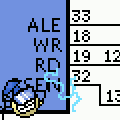|
One didn't like my answer to "design Instagram's feed feature" where I literally suggested exactly what Instagram did with Redis and optimizing for extremely fast lookups per user instead of writes, and the guy was pretty combative. The other one was just really SQL heavy despite me communicating that I hadn't used SQL in years.
|
|
|
|

|
| # ? Apr 26, 2024 03:33 |
|
I remember bombing an iOS interview where I was expected to explain the different kinds of SQL joins and then implement them. I *could* look them up, and the algorithm probably wouldn't be hard...but why?
|
|
|
|
I probably bombed an interview because I struggled with some SQL because I generally rely on the database to yell at me until I get it right. The interviewer did teach me about window functions though  . .
Ghost of Reagan Past fucked around with this message at 23:54 on Mar 16, 2018 |
|
|
|
For non-junior dev positions we ask for a code sample and/or offer a take home simplified version of a problem we solved in one of our products. For the take home we accept anything from a couple paragraphs describing how youíd solve it and what issues you might run into all the way to a working implementation. So you can spend 30 minutes on it or take a whole week if you enjoy it for some reason, whatever you like. And weíve had successful submissions that ran the gamut. We make it clear that we donít expect more than 30-60 minutes' effort, and itís pass/fail so thereís no bonus marks for spending extra time. (For juniors we donít require a take home or sample code, though itís welcome if available.) I'm not sure if this is a good or bad process, but it seems to miss some of the land mines by being a brief time commitment, not looking for a trick answer, and is a literal example of something weíve built on the job. It gives something to talk about in the interview too, if that starts getting awkward.
|
|
|
|
Good Will Hrunting posted:One didn't like my answer to "design Instagram's feed feature" where I literally suggested exactly what Instagram did with Redis and optimizing for extremely fast lookups per user instead of writes, and the guy was pretty combative. I've had several "design [existing thing]" before and it's like.. what do you want from me.
|
|
|
|
Jaded Burnout posted:I've had several "design [existing thing]" before and it's like.. what do you want from me. The first time I interviewed at Google, when I was still in college, one of the interview questions was to design Google's search engine. They don't expect you to come up with a design that's anywhere near a match for what they've actually implemented. It's just an excuse to see your design skills and have the ability to push them by throwing curveballs at you, in a domain where the interviewer knows a lot about possible curveballs because they work on the real thing.
|
|
|
|
TooMuchAbstraction posted:The first time I interviewed at Google, when I was still in college, one of the interview questions was to design Google's search engine. That's how it's supposed to work, yes, and perhaps Google asking you to implement Google does work that way. But I've has not-Twitter ask me to implement Twitter not in its current form but as though you're doing it back in 2005. It's just too abstract a roleplay to have one person weakly trying to invent the reality of Twitter's growth and feature demands so that another person can invent solutions. "OK so what if the userbase triples" "I don't know, how big an SQL server did we start with, what's our runway like, is the CEO a dick? What's our revenue model?" Why not bust out the monster manual and some D20s while we're at it. The problem is that the fictional problem space you're working in is huge and they've only got a portion of it in their head, but all you get is "implement twitter". Maybe they want you to talk about that stuff but probably they want you to say something about memcache. But I'm not a loving mindreader. Hence, what do you want from me. Jaded Burnout fucked around with this message at 02:54 on Mar 17, 2018 |
|
|
|
I've had interviews where I was explaining to 2 idiots the service I designed that handled 10 users per second. I felt quite proud of that accomplishment as 10 users per second seemed to me to be quite a fair bit. Well, what do you do when you have 100 users per second? I loving retire to the Bahamas that's what i do. Until then, put up more memory in those drat VMs and shut the gently caress up. You're not google, you're not amazon or facebook. You will see 5 users per hour at some point in the next century.
|
|
|
|
Volguus posted:I've had interviews where I was explaining to 2 idiots the service I designed that handled 10 users per second. I felt quite proud of that accomplishment as 10 users per second seemed to me to be quite a fair bit. We regularly deal with way more than a hundred CCU. Orders of magnitude more. You donít need to be facebook, amazon, netflix, or google to hit real workloads.
|
|
|
|
leper khan posted:We regularly deal with way more than a hundred CCU. Orders of magnitude more. Certainly, but you are far and very very few in-between. Jhonny software-works isn't gonna hit that number in a decade. And oh, every software shop wants to present themselves as a "10000 concurrent users" service. 99.9999% are never gonna hit those numbers. Asking for infrastructure plans for something that may happen 20 years for now is laughable at best. Volguus fucked around with this message at 06:11 on Mar 17, 2018 |
|
|
|
My experience in the UK: Zero whiteboard questions, mostly pairing to implement a kata of some sort (shoping cart, potter kata, bowling etc.) my most recent one was "write the equivalent of Elixrs 'get_in' in Javascript": https://hexdocs.pm/elixir/Kernel.html#get_in/2. From my experience we seem to not be too fussed about computer science type questions as much as "are they going to be a dick?" questions.
|
|
|
|
While there are so many web/enterprise/front-end/back-end/whatever jobs available, there are also a ton of people fighting over the jobs in this area. I'm coming from the embedded space, which has far fewer positions to interview for, and these stories about take-home projects, graph algorithm white board interview questions, and meta-interview prep studying amaze me. You folks have it tough. Embedded development interviews are far more straight-forward with far fewer games. We generally run into two big hurdles when interviewing, though: 1. You're being interviewed by people that don't have the knowledge to properly assess you on the material. It could be that a company suddenly find itself with a need to hire someone with knowledge on XYZ because they don't have that knowledge in-house, so they assign a couple of people to interview you who don't understand the details of what they're asking about. Or, maybe you're being interviewed by a PM that knows software and absolutely nothing about hardware. That's OK, though... these companies will eventually end up with some shyster that will make them think that he is working hard, but he's actually screwing around for 12-18 months before moving on just before he gets discovered. 2. You're being interviewed by a prima donna "expert" of some sort that wants to use the interview as an opportunity to show off what he knows. These guys love "trivia" questions and very specific questions that focus on really esoteric tidbits that only they know about because they tripped over it themselves three or four years ago. The big risk is that you won't be given the thumbs-up unless you have skills that fit into a particular band of ability. If you're too good, you're a "threat" and they'll find some excuse to avoid hiring you. If you're good and can do the job, you might get filtered because you aren't "good enough" per the expert's inflated ego. You have to be very good, but not too good, to pass that filter (which can be a bit tricky). Plus, do you really want to work with that guy if you get hired? To be fair, the majority of times that I have interviewed (maybe 90% of the time) have been with geeky guys that really enjoy working hands-on with embedded stuff. They're looking for someone that they can converse with on a technical level who can do the work and who clearly "gets" and "likes" doing that kind of work. I have run into both of the two interviewing hurdles I listed above on more than one occasion, though, and it has always been delightfully awkward each time.
|
|
|
|
I'm not really sure that those problems are unique to embedded development.
|
|
|
|
ultrafilter posted:I'm not really sure that those problems are unique to embedded development. I doubt they are.
|
|
|
|
hendersa posted:To be fair, the majority of times that I have interviewed (maybe 90% of the time) have been with geeky guys that really enjoy working hands-on with embedded stuff. They're looking for someone that they can converse with on a technical level who can do the work and who clearly "gets" and "likes" doing that kind of work. Can you go into further detail what a typical embedded interview is like? Like, what sorts of things get talked about in the course of a typical one?
|
|
|
|
BurntCornMuffin posted:Can you go into further detail what a typical embedded interview is like? Like, what sorts of things get talked about in the course of a typical one? It all really depends on the position. My specialty has always been on using Linux, so questions about how to tailor a Linux kernel for an embedded environment, Linux device drivers, and embedded filesystem gotchas tend to be the main areas of focus in my prior interviews. I think you could ask a lot of the embedded folks on the forums what they get asked and get a broad variety of different answers. Embedded developers are also coming from EE, CE, or CS backgrounds, so they can focus on different aspects of the same development tasks. Being a person that can work on a team is so important in the embedded space: you're going to have to work with others to bring a product together. Very rarely is one person going to be able to handle all development aspects of an embedded project, unless the project is little more than a few tweaks to a vendor-supplied design and BSP. That's why I mentioned that your interviewers are typically trying to make sure you like and "get" the technology and that you are someone that they won't mind working with on it.
|
|
|
|
Volguus posted:Certainly, but you are far and very very few in-between. Jhonny software-works isn't gonna hit that number in a decade. And oh, every software shop wants to present themselves as a "10000 concurrent users" service. 99.9999% are never gonna hit those numbers. Asking for infrastructure plans for something that may happen 20 years for now is laughable at best. This cuts both ways with engineers as well. Everyone who slings code styles themselves as these paragons of excellence while the reality is that even if they can implement bubble sort in their sleep they still won't be able to scratch a functional system that can process more than 1,000 requests a second much less a fully-formed data ingestion pipeline that does terrabytes a day. The reality of designing software systems has almost nothing to do with the ability to regurgitate implementations of algorithms that were taught in school. The simple fact that we use this "skill" as a metric to try to find candidates just means that we, as an industry, actually have a pretty piss poor sense of what markers indicate a good employee before we see them in action for a few weeks/months. Blinkz0rz fucked around with this message at 15:56 on Mar 18, 2018 |
|
|
|
Volguus posted:I've had interviews where I was explaining to 2 idiots the service I designed that handled 10 users per second. I felt quite proud of that accomplishment as 10 users per second seemed to me to be quite a fair bit. Maybe reconsider sharing the 10 TPS service story in a future interview if you're uncomfortable going into how you'd scale it. From an interviewer's perspective, it's a very fair line of questioning that gives insight into your thought process and previous experience level. Two example answers: - No, I don't know how I'd scale it up an order of magnitude. At all. Even allowing for fundamental, hypothetical changes to the system. - We can scale it up, but here are the dependencies in the system that would need to change to support it. These trade-offs were considered when I initially implemented the design. I went with A, B,C for X, Y, Z reasons.
|
|
|
|
rsjr posted:Maybe reconsider sharing the 10 TPS service story in a future interview if you're uncomfortable going into how you'd scale it. From an interviewer's perspective, it's a very fair line of questioning that gives insight into your thought process and previous experience level. Haha, no, in my particular case I knew how to scale it and for how long can i do it (vertical and horizontal) before the entire house of cards wold fall down.My story was about the 2 idiots (and others like them) that behaved like their thing will be the next facebook with bazillions of users. I knew what that particular company made, I saw the performance characteristics of their systems before stepping foot into that interview and during the interview they described to me their 1 user per day solution that they were selling. The entire idea is about the "You ain't gonna need it" principle. You're spending all that time creating the most scalable, flexible super-duper mega system that can handle 5 times the capacity of google, but forget to hash and salt the passwords in the database. There is a time and place for all that design, certainly it isn't upfront when you still have critical features to implement and think about.
|
|
|
|
Volguus posted:The entire idea is about the "You ain't gonna need it" principle. You're spending all that time creating the most scalable, flexible super-duper mega system that can handle 5 times the capacity of google, but forget to hash and salt the passwords in the database. There is a time and place for all that design, certainly it isn't upfront when you still have critical features to implement and think about. This is what I have been thinking about this weekend. As said a page or two back, Wednesday I have an interview and in the job description was the phrase "our ideal candidate is capable of setting up a SpringBoot backend with one of the hip js frontend, using an in-memory database". Something I never done but I figured I would impress them by setting up something super duper simple but functional over the next two days when I am not working anyway. Saturday and Sunday I was away with friends, but I keep pondering on grand designs and complex set up scripts. Now it is almost Monday and I need to churn something out in only like 15 hours so it will be bare minimum stuff just to show I can build it, a classic MVP approach. The last to pages helped me a lot: build something that works, include some tests and make it readable. Biggest challenge will be front-end, never looked at js in my life... Anyone can suggest a sample project for some, any, js framework that allows me to display some http rest api calls in some fields on a page?
|
|
|
|
Volguus posted:Haha, no, in my particular case I knew how to scale it and for how long can i do it (vertical and horizontal) before the entire house of cards wold fall down.My story was about the 2 idiots (and others like them) that behaved like their thing will be the next facebook with bazillions of users. I knew what that particular company made, I saw the performance characteristics of their systems before stepping foot into that interview and during the interview they described to me their 1 user per day solution that they were selling. Am I capturing your points correctly: I should only be asked scaling questions in interviews by companies who I think will face those scaling concerns, otherwise we should focus on another topic (presumedly something I agree is applicable to their current technology situation). As far as the rest of your reply... I think the point of the question is to pretend like you now need it and what'd you do.
|
|
|
|
rsjr posted:Am I capturing your points correctly: I should only be asked scaling questions in interviews by companies who I think will face those scaling concerns, otherwise we should focus on another topic (presumedly something I agree is applicable to their current technology situation). No, is not a problem to ask. It is a problem to pretend that anything less than 10000 per second is bullshit and dismiss it as such. And that's how those people (and others like them) act. And that's how even engineers and architects sometimes behave, burning through the funding with nothing to show for in the end. Be realistic, pragmatic, know what is important and what isn't (or at least not yet). What should be tackled right now vs what can wait.
|
|
|
|
lovely interviewers ruin the industry. It'd be cool if there was more efforts to getting good interviewing info out to people. At least you dodged a bullet. 2nd Rate Poster fucked around with this message at 21:22 on Mar 18, 2018 |
|
|
|
Keetron posted:Biggest challenge will be front-end, never looked at js in my life... Anyone can suggest a sample project for some, any, js framework that allows me to display some http rest api calls in some fields on a page? You'll probably get some quickstart mileage from jQuery: http://api.jquery.com/jQuery.getJSON/ It's falling out of favour a little but it's been around so long you can absolutely google some tutorials and stackoverflows. JS isn't too bad, most everything uses anonymous function callbacks, and be careful about your equality comparisons.
|
|
|
|
Jaded Burnout posted:You'll probably get some quickstart mileage from jQuery: Be very aware of how XSS vulnerabilities work and how to prevent them, as well. Even if it doesn't come up in an interview, the last thing you want is to be caught in security fallout because of something you wrote. In fact, just go through the entire OWASP list and get at least passing familiarity with web app security, JS has a lot of ways you can shoot yourself from a security perspective. If you want to go the extra mile, breaking JS implementations isn't a half bad way to learn JS. BurntCornMuffin fucked around with this message at 21:42 on Mar 18, 2018 |
|
|
|
Keetron posted:Biggest challenge will be front-end, never looked at js in my life... Anyone can suggest a sample project for some, any, js framework that allows me to display some http rest api calls in some fields on a page? jQuery isn't a hip JS framework, but it's something with clear documentation which you can use out of the box. Trying to set up Angular or React without knowing what you're doing might eat up a lot of time for not much return in such a simple use case.
|
|
|
|
Anyone know anything about or been through Topgrading? I'm in an interview process and it looks like the last interview in this process is a Topgrading style interview. Apparently they're going to be going over my whole career history in detail and dig up people to contact to cross reference what I say...
|
|
|
|
BurntCornMuffin posted:Anyone know anything about or been through Topgrading? I'm in an interview process and it looks like the last interview in this process is a Topgrading style interview. Apparently they're going to be going over my whole career history in detail and dig up people to contact to cross reference what I say... Are you getting a job at the CIA or something?
|
|
|
|
How are people able to find new jobs every year - 18 months? I don't feel like I can be comfortable at interviewing without 6-9 weeks, give or take, of algo and white-boarding prep per night and 2-3 hours on weekends. On top of that, there's take-homes and interviewing which are both super time-consuming. What am I doing wrong? Trying to have a life?
|
|
|
|
Good Will Hrunting posted:How are people able to find new jobs every year - 18 months? I don't feel like I can be comfortable at interviewing without 6-9 weeks, give or take, of algo and white-boarding prep per night and 2-3 hours on weekends. On top of that, there's take-homes and interviewing which are both super time-consuming. What am I doing wrong? Trying to have a life? What prep? Just wing it. 90% of the companies you interview with won't be there in 12 months anyway. Google? Yes prep, do your best, blah blah blah. For the others, unless you're serious about finding a new job... don't matter.
|
|
|
|
Good Will Hrunting posted:I don't feel like I can be comfortable at interviewing without 6-9 weeks, give or take, of algo and white-boarding prep per night and 2-3 hours on weekends. What kind of metrics are you collecting over this 100-hour marathon prep session that you're actually improving? God, take night classes, earn a Masters or MBA with that kind of time. e: for my last job search I hit 2 companies, did ~3 practice whiteboard problems, and read an old textbook based on the specifics I was weak on in the phone screen
|
|
|
|
Good Will Hrunting posted:How are people able to find new jobs every year - 18 months? I don't feel like I can be comfortable at interviewing without 6-9 weeks, give or take, of algo and white-boarding prep per night and 2-3 hours on weekends. On top of that, there's take-homes and interviewing which are both super time-consuming. What am I doing wrong? Trying to have a life? If you interview often enough it counts as practice.
|
|
|
|
I'm in New York City. Every company here emulates Google. Literally every single one. Does it matter if these are lovely companies that suck? Not really, because I live in New York City and want a job in New York City so I have to... prep for interviews at companies in New York City. The whiteboarding questions I was asked in my last round of interviews were not something I would have been successful with had I not spent a good chunk of time preparing. I don't even plan on applying to Google but my old manager had an interview at another large company here today that I am applying to and it was 6 hours of whiteboarding, and he has the same thing tomorrow. It's just the way things go here, it seems. ultrafilter posted:If you interview often enough it counts as practice. See, this is what aforementioned manager above suggested. And I am at a point where it's going to become a viable solution. JawnV6 posted:Is this another bad-dev character bit I don't understand? This is utterly ridiculous. I'm just practicing things I haven't looked at in a while. Whether that's algo things, nuances of garbage collection and java.util.concurrent, various other types of arbitrary review.. I was rusty during my last search and it wasn't until I hammered down prep that I felt comfortable. After that I started to do a lot better. Also my job is terrible and I've stagnated a lot. Good Will Hrunting fucked around with this message at 01:32 on Mar 20, 2018 |
|
|
|
Good Will Hrunting posted:How are people able to find new jobs every year - 18 months? I don't feel like I can be comfortable at interviewing without 6-9 weeks, give or take, of algo and white-boarding prep per night and 2-3 hours on weekends. On top of that, there's take-homes and interviewing which are both super time-consuming. What am I doing wrong? Trying to have a life? That's an insane study schedule. It's roughly the equivalent hours of three college courses, except compressed into 2/3rds of the time a typical college class allows. I refuse to believe anyone needs that much preparation to pass an interview or that all that time is being spent efficiently.
|
|
|
|
Define "efficiently". I work full-time, so now, I'm not even close to being "efficient" when I get home and do review during the evenings.
|
|
|
|
Good Will Hrunting posted:I'm in New York City. Every company here emulates Google. Literally every single one. I am a dev in New York and this is factually incorrect, judging by my personal experience. If youíre interested in fintech send me a resume/PM. Iím not a hiring manager but I can see if you fit with any of our open reqs.
|
|
|
|
Good Will Hrunting posted:Define "efficiently". I work full-time, so now, I'm not even close to being "efficient" when I get home and do review during the evenings. "In a way that, at the end of the study session, you've learned something new and will retain it in such a way that you can make use of it in an interview." You're setting yourself up to fail and/or burn out if those are the kinds of demands you're putting on yourself, especially after a full day's work.
|
|
|
|
Good Will Hrunting posted:I'm in New York City. Every company here emulates Google. Literally every single one. Does it matter if these are lovely companies that suck? Not really, because I live in New York City and want a job in New York City so I have to... prep for interviews at companies in New York City. The whiteboarding questions I was asked in my last round of interviews were not something I would have been successful with had I not spent a good chunk of time preparing. I may just not be being selected to talk to these companies but I don't think it's a universal thing.
|
|
|
|
raminasi posted:I am a dev in New York and this is factually incorrect, judging by my personal experience. If you’re interested in fintech send me a resume/PM. I’m not a hiring manager but I can see if you fit with any of our open reqs. I'll reach out to you after I've got my resume updated. I've just started a cursory evaluation at the moment. fantastic in plastic posted:"In a way that, at the end of the study session, you've learned something new and will retain it in such a way that you can make use of it in an interview." Honestly? I'm young, I didn't study CS in undergrad, I've only been coding 5? 6? years with any seriousness and I feel like I'm playing an immensely stressful game of catch-up for most of the roles here.
|
|
|
|

|
| # ? Apr 26, 2024 03:33 |
|
Good Will Hrunting posted:Honestly? I'm young, I didn't study CS in undergrad, I've only been coding 5? 6? years with any seriousness and I feel like I'm playing an immensely stressful game of catch-up for most of the roles here. I'm sympathetic. I didn't study CS in undergrad, either, and you have slightly more experience than I do. I dislike whiteboard interviews as much as anyone, but they don't terrify me into torturing myself. I don't use self-torture lightly -- reflect on how, in terms of hours, what you suggested is the same time commitment as multiple college classes on an accelerated timeline. (A typical class is 45 hours spread over 15 weeks.) The college class would have a professor who can give you a syllabus. The syllabus has a logical sequence of lessons planned in advance, tells you exactly what you need to learn and how you're going to be evaluated. The professor can also help you by answering your questions. With self-study, you have to do all of that for yourself or risk wandering around without any certainty that you're on the right track. I think anyone would find that hellish.
|
|
|





























